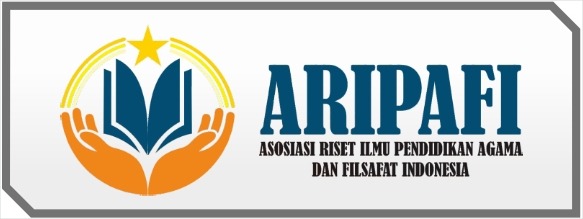Asbabun Nuzul Islamic Education Perspective
DOI:
https://doi.org/10.61194/ijis.v1i2.81Keywords:
Understanding, How to Know, Types, Benefits and Educational Values of Asbabun NuzulAbstract
This research was conducted to analyze asbabun nuzul from the perspective of Islamic education. An in-depth study of asbabun nuzul from the perspective of Islamic education is rarely carried out in a learning process, moreover it will analyze the educational values contained in the asbabun nuzul. This study uses a library research approach (library research). The results of this study are asbabun nuzul as an event that causes the decline of one or several verses of the Qur'an, or an event that can be used as a legal guide regarding the revelation of a verse. How to find out asbabun nuzul through authentic history, namely history based on the Prophet Muhammad SAW. Asbabun nuzul consists of several types which in general are asbabun nuzul based on responses to events and asbabun nuzul based on questions to the Prophet SAW, the benefits and educational values in asbabun nuzul broadly teach humans to be able to take lessons from the cause of the incident.
References
Ahmad, Syukraini. Juli – Desember 2018. Asbab Nuzul. Jurnal El-Afkar. Vol. 7, No. 11, hlm. 95 – 106.
Alifah, Fitriani Nur. 2019. Watak Asbab An-Nuzul Dalam Pendidikan Islam. Jurnal Pendidikan Islam. Vol. 2. No. 1. hlm. 28 – 44.
Drajat, Amroeni. 2017. Ulumul Qur’an. (Depok: Kencana).
Sari, Milya dan Asmendri. 2020. Penelitian Kepustakaan (Library Research) dalam Penelitian Pendidikan IPA. Jurnal Pendidikan IPA. Vol. 6. No. 1. hlm. 41 – 53.
Shihab, Quraish. dkk. 2001. Sejarah ‘Ulum Al-Qur’an. (Jakarta: Pustaka Firdaus).
Wahid, Lalu Abdurrahman. 2021. Nilai-Nilai Pendidikan dengan Adanya Term Asbabu Al-Nuzul Dalam Kaidah Tafsir Al-Qur’an. Jurnal Kajian Islam dan Pendidikan. Vol. 13, No. 2, hlm. 104.
Zaini, Ahmad. Juni 2014. Asbab An-Nuzul dan Urgensinya dalam Memahami Makna Al-Qur’an. Jurnal Hermeunetik.Vol. 8. No. 1. hlm. 1 – 20.
Abusharbeh, M. (2021). The mediating effect of risk management for Palestinian Islamic banks’ strategic planning and profitability performance. Problems and Perspectives in Management, 19(4), 482–494. https://doi.org/10.21511/ppm.19(4).2021.39
Akmal, T., & Jamil, F. (2021). Assessing health damages from improper disposal of solid waste in metropolitan islamabad–rawalpindi, Pakistan. Sustainability (Switzerland), 13(5), 1–18. https://doi.org/10.3390/su13052717
Baker, J. (2019). ‘Is it a mosque?’ The Islamization of space explored through residents’ everyday ‘discursive assemblages.’ Identities, 26(1), 12–32. https://doi.org/10.1080/1070289X.2017.1321861
Chernela, J. M. (2011). Barriers Natural and Unnatural: Islamiento as a Central Metaphor in Kuna Ecotourism. Bulletin of Latin American Research, 30(1), 35–49. https://doi.org/10.1111/j.1470-9856.2010.00447.x
El Khamlichi, A., Yildiz, S. B., Sarkar, K., & Hoque, H. (2021). Do Islamic stock indices perform better than their conventional counterparts? International Journal of Business Performance Management, 22(2–3), 236–256. https://doi.org/10.1504/IJBPM.2021.116417
Haghighat, E. (2014). Establishing the connection between demographic and economic factors, and gender status in the middle:East debunking the perception of islam’s undue influence. International Journal of Sociology and Social Policy, 34(7–8), 455–484. https://doi.org/10.1108/IJSSP-01-2013-0004
Islam, B. S. B., Amirkhiz, A. C., Valipour, H., & Safaierad, R. (2020). Study on the Effects of the Mid-Holocene Climatic Changes on Sialk III Societies in North Central Iran Based on Environmental Sedimentology of Mafin Abad, Islamshahr. Journal of Archaeological Studies, 12(3), 143–166. https://doi.org/10.22059/JARCS.2021.239133.142465
Kaya, A. (2015). Islamisation of Turkey under the AKP Rule: Empowering Family, Faith and Charity. South European Society and Politics, 20(1), 47–69. https://doi.org/10.1080/13608746.2014.979031
Khan, M., Wu, Q., Yan, S., & Peng, J. (2022). Data-Driven Urban Management and its Impact on Upgradation of Slums in Islamabad, Pakistan: Mediating Role of Privacy and Security Concerns. Journal of Urban Planning and Development, 148(2). https://doi.org/10.1061/(ASCE)UP.1943-5444.0000811
Latief, H., & Madjid, A. (2022). Majlis Taklim and The Path Of Women’s Islamization In Indonesia. Muslim World, 112(4), 457–472. https://doi.org/10.1111/muwo.12449
Odok, G. E. (2020). Disruption of patriarchy in northern Islamic Nigeria. Gender, Place and Culture, 27(12), 1663–1681. https://doi.org/10.1080/0966369X.2019.1693346
Said, M. M., Muhammad, N., & Elangkovan, K. (2014). The continuity and change of Indonesia’s Islamic higher educational institutions in the amid of educational policy change. Asian Social Science, 10(6), 71–80. https://doi.org/10.5539/ass.v10n6p71
Tajbakhsh, K. (2020). Authoritarian state building through political decentralization and local government law: Evidence from the Islamic Republic of Iran. Onati Socio-Legal Series, 10(5), 1040–1074. https://doi.org/10.35295/osls.iisl/0000-0000-0000-1029
Thirty years of Islamic revolution in rural Iran. (2009). Middle East Report, 39(250), 34–39. https://www.scopus.com/inward/record.uri?eid=2-s2.0-65549098843&partnerID=40&md5=1b90b5df2b582e19c258a8997c56d8fa






